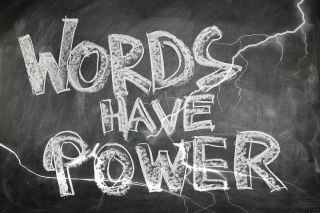Cognition
Are You a Victim or a Survivor?
The words we use to describe ourselves shape our future.
Posted April 21, 2023 Reviewed by Tyler Woods
Key points
- Psycholinguists have revealed the unexpected power of words.
- Words can not only be used to describe the past and the present, they can be used to shape the future.
- Resilience begins by shifting from fixations on the past to harnessing the power of words to create a new you and a new future.

Words are the lens through which we understand ourselves and the world in which we live. Words can be prophecies. The path to resilience is lined with words that can delay and inhibit, or that can strengthen and empower.
The Power of Words
The notion that the language we use has the power to shape how we view ourselves, how we interpret the world in which we live, and how our destiny unfolds is more than a pithy idea. It is an assertion grounded in the science of psycholinguistics. Though mentioned by Plato, these notions were first developed by the German philosopher W. V. Humboldt (1767-1835). Later, in their theory of linguistic relativity, linguists Edward Sapir (1884-1939) and Benjamin Lee Whorf (1897-1951) proposed a more powerful deterministic role of language by noting language does not only reflect reality but actually shapes it to a large extent. Whorf stated that the world is presented in a kaleidoscopic expanse of impressions which is ultimately organized by the linguistic system in our minds (Whorf, 1940). Simply said, who you are and who you are to become is greatly influenced by the words you use to describe yourself.
Adversity Is Prevalent
There is no question that adversity is prevalent and comes in many forms. For example, data suggest that about 40 percent of children have experienced one or more adverse childhood experiences (ACEs). Similarly, about half of adults have been exposed to a traumatic event. Bullying is widespread, with 20 percent of high school students, 40 percent of internet users, and over 50 percent of employees at the workplace reporting being bullied. These experiences and their adverse consequences can be powerful influences on anyone, but they do not have to define you. They certainly do not have to shape your future.
Resilience Begins With Your Words
If you believe words are not only descriptors but prophecies as well, then how you describe yourself in the wake of adversity matters. In the wake of adversity, are you a “victim” or are you a “survivor”? The language of victimization has typically been in the passive voice. Victimization happens to a victim. Survivorship is defined as the act of surviving. Surviving is an active process. I believe we must change our language that emphasizes the passive role of the victim to the active role of the survivor. Things happen to victims. Survivors make things happen. They shape their futures. The word "victim" causes us to focus on the past. The word "survivor" allows us to focus on the future.
The artist has over one trillion colors with which to create a picture on a canvas. Though we have only 171,000 words in the English language to paint the stories of our lives, should we not take advantage of as many verbal hues as possible to shape our realities, for surely they will enrich our lives in the same manner the artist’s selection of colors shapes and enriches our visual experiences?
Though the cathartic expression of past adverse experiences can reduce acute distress, lest we become fixated on the past, at some point it becomes more constructive to start using our words to describe the future we desire and, in doing so, "victim" becomes "survivor."
(c) 2023, George S. Everly, Jr., PhD
References
Whorf, B. L. (1940): Science and linguistics, Technology Review 42(6): 229-231, 247-248.


